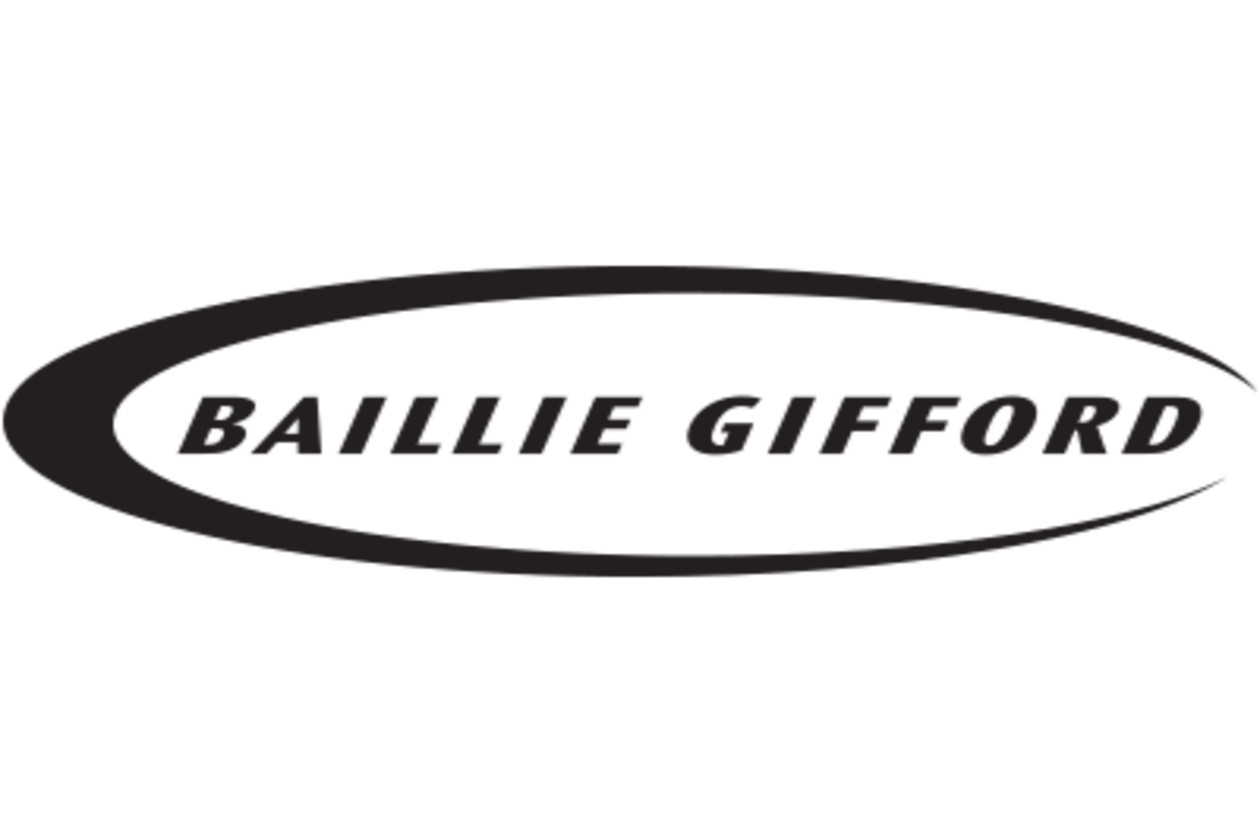The managers invest in companies they think will grow faster than the average company over the long term
Gary Robinson and Kirsty Gibson are prepared to invest in companies for long periods to increase the potential to benefit from long-term growth
The trust uses a significant amount of its allowance to invest in private companies
How it fits in a portfolio
Baillie Gifford US Growth Trust invests in US companies that the managers think have the potential to grow faster than the average company. They aim to invest for the long term to increase the potential to benefit from a company’s longer-term growth. These companies can be public or private (companies not currently listed on a stock market).
This trust could form part of an adventurous investment portfolio and diversify portfolios which have little invested in the US. Investors in investment trusts should be aware that they can trade at a discount or premium to net asset value (NAV).
Manager
Gary Robinson joined Baillie Gifford in 2003 and has experience of working in their Japanese, UK and European equity teams prior to joining the US equity team. Kirsty Gibson joined Baillie Gifford after graduating in 2012 and has co-managed the trust since March 2021. Robinson and Gibson co-manage a few other funds at Baillie Gifford, including the Baillie Gifford American fund. These are run in a similar way to this trust and invest in some of the same companies, so we think they’re able to devote enough time to each one.
Process
This trust invests in disruptive businesses with strong growth prospects based in the US. The managers’ growth style of investing aims to benefit from investing in exceptional businesses and holding them for long enough to reap the rewards.
The trust invests in both companies that trade publicly on the stock market, and private companies that don’t. The managers believe this offers greater opportunities. Investing in private, or unquoted, and smaller companies increases risk.
Robinson and Gibson can invest up to 50% of the trust’s assets (at the time of investment) in private companies. As at the end of July 2025, 27 private investments made up 33.8% of the trust’s assets, compared with 25 one year earlier. In addition to the private companies, the trust invests in 47 public companies. It has the flexibility to invest in derivatives, which if used adds risk.
The trust’s largest private investment, accounting for 11.6% of its assets at the end of July, is Space Exploration Technologies. The business designs, manufactures and launches advanced rockets and spacecraft. In the trust’s last financial year to the end of May 2025, the managers invested in three new private companies, Rippling a workforce management platform, Runway AI, an AI video platform company, and entertainment and technology company Cosm Experience.
The trust also borrows money to invest with the intention of increasing returns (known as gearing). This could magnify gains in a rising market, but losses in a falling market, so it increases risk. At the end of July gearing was 5% - the same as the previous year.
Robinson and Gibson recently invested in DraftKings, with regulatory barriers easing around online sports betting in the US. They also invested in appliance business SharkNinja, which continues to perform well despite a competitive market. Warehouse company Lineage, IT service provider Globant, and nursing facility operator The Ensign Group were also added to the trust.
On the other hand, the managers sold social media management platform Sprout Social as they expect growth to slow and saw better opportunities elsewhere. Investments in biotech company 10X Genomics and online education company Coursera were also sold.
Culture
Baillie Gifford is an independent private partnership founded in 1908. It's owned by partners who work full time at the firm. Gary Robinson is a partner at the firm. This ownership structure means senior managers have a vested interest in the company, and its funds and trusts under management performing well. We think this has helped cultivate a culture with a long-term focus, where investors' interests are at the centre of decision making. We also like that managers are incentivised in a way that aligns their interests with those of long-term investors and should retain talented managers.
ESG Integration
All of Baillie Gifford’s funds and investment trusts are run with a long-term investment horizon in mind. The firm’s fund managers see themselves as long-term owners of a business, not short-term renters. So, assessing whether society will support, or at the very least, tolerate, the business model over the long term, and whether management will act as good stewards of shareholders’ capital is an important part of the investment process.
Dedicated Environmental, Social and Governance (ESG) analysts sit with and report into both their respective investment teams, and the central ESG function. The firm’s ESG efforts are supported by a dedicated Climate team, an ESG Core team (responsible for voting operations, ESG data and ESG-related client communications). Individual investment teams are responsible for voting decisions and engagement for the companies they invest in. Investment in controversial weapons and cannabis is prohibited across the firm.
The firm reports all its voting decisions and provides rationale in situations where it votes against management or abstains, in a detailed quarterly voting report. There is also a quarterly engagement report which details the companies engaged with, and the topic discussed, and further engagement case studies are available on the website. All this information is brought together in the firm’s annual Investment Stewardship Activities report.
Baillie Gifford courted controversy in 2024 when it left the Net Zero Asset Managers’ Initiative, a group of asset managers that have committed to achieving net zero carbon emissions by 2050, and the Climate Action 100+ collaborative engagement scheme. We view this as a disappointing backward step but are encouraged that the group's net zero and engagement-related commitments remain unchanged.
Although ESG is taking into consideration throughout the team’s investment process this is not a sustainable trust.
Cost
The trust's ongoing annual charge in the year to May 2025 was 0.72% - a marginal increase from 0.70% the previous year. Investors should refer to the latest annual reports and accounts and Key Information Document for details of the risks and charging structure.
If held in a SIPP or ISA, the HL platform fee of 0.45% (capped at £200 for a SIPP and £45 for an ISA) per annum also applies. Our platform fee doesn’t apply if held in a Fund and Share Account.
Investment trusts trade like shares, both a buy and sell instruction will be subject to the HL share dealing charges within any Hargreaves Lansdown account, except online in the HL Junior ISA.
Performance
Since the trust launched in March 2018 to the end of July 2025, its share price has grown by 162.60%*, outperforming the 137.35% gain for the average trust in the AIC North America sector. In this time the trust’s Net Asset Value (NAV) has risen 202.57%. Past performance is not a guide to future returns.
The trust’s had periods of strong performance, but struggled when the managers’ growth-focused investment style has fallen out of favour with investors, such as in 2022.
Over the trust’s financial year to the end of May the trust’s share price grew 24.48% compared to 10.31% for the average trust in the AIC North America Sector. The trust’s NAV returned 22.14%.
Private aerospace company SpaceX was one of the largest contributors to performance. The business has successfully launched more satellites into orbit and grown its subscriber base for its internet service, Starlink. Educational technology company Duolingo and internet streaming company Netflix also performed well.
Some companies haven’t performed as well. This includes healthcare company Moderna, though the managers believe its pipeline of new drugs presents an exciting opportunity. Restaurant chain Sweetgreen and private companies Brex and Lyra Health also detracted from performance.
Investors should note the managers’ long time horizon and investments in private companies means performance can be volatile and look very different to the benchmark.
Remember all investments fall as well as rise in value, so investors could get back less than they invest. At the time of writing, the trust trades on a discount of 8.56%, marginally higher than its 12-month average discount of 8.42%. Since inception the trust has on average traded at a 5.41% discount.
Annual percentage growth
31/07/2020 To 31/07/2021 | 31/07/2021 To 31/07/2022 | 31/07/2022 To 31/07/2023 | 31/07/2023 To 31/07/2024 | 31/07/2024 To 31/07/2025 | |
|---|---|---|---|---|---|
Baillie Gifford US Growth Trust | 59.91% | -48.38% | -5.71% | 19.64% | 37.28% |
AIC Investment Trust - North America | 42.86% | 0.31% | 0.49% | 17.27% | 17.07% |


